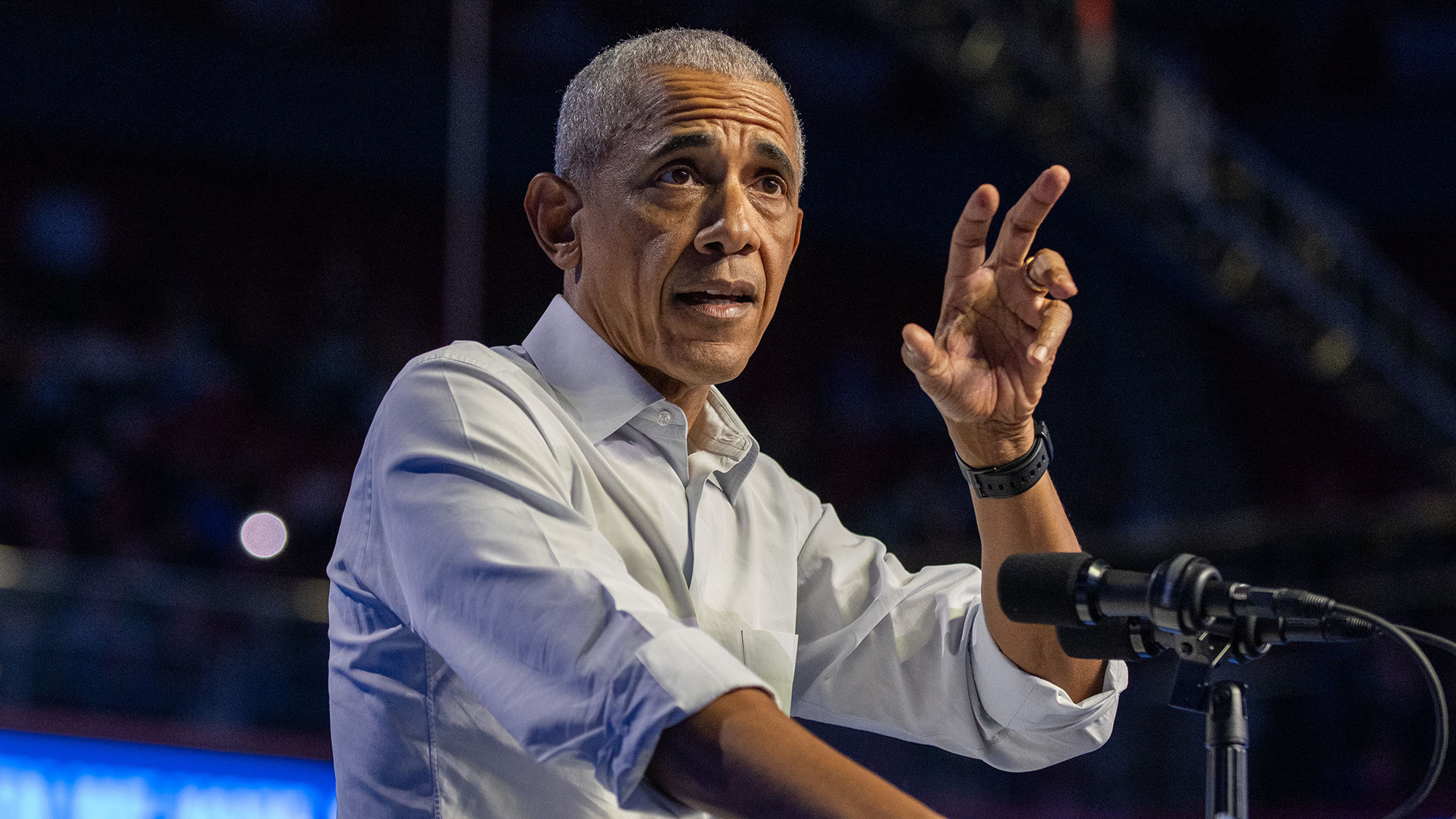Data illegally harvested from 50 million Facebook users
Use of private data by Cambridge Analytica in attempt to influence US election sparks calls for new regulation

A free daily email with the biggest news stories of the day – and the best features from TheWeek.com
You are now subscribed
Your newsletter sign-up was successful
Politicians have demanded answers and action after it emerged more than 50 million Facebook users had data harvested without their consent, which was then used to influence the 2016 US presidential election.
Revelations by whistleblower Chris Wylie, first published in The Observer and The New York Times, suggest private information from more than 50 million users improperly ended up in the hands of Cambridge Analytica, a US-based data analysis firm.
The company, at one time linked to former Trump special advisor Steve Bannon, is “well known for the role it played in President Trump’s election campaign, where it provided intricate data on the thoughts of American voters”, says the BBC.
The Week
Escape your echo chamber. Get the facts behind the news, plus analysis from multiple perspectives.

Sign up for The Week's Free Newsletters
From our morning news briefing to a weekly Good News Newsletter, get the best of The Week delivered directly to your inbox.
From our morning news briefing to a weekly Good News Newsletter, get the best of The Week delivered directly to your inbox.
While many claim Cambridge Analytica had a decisive impact on the election result by enabling the Trump campaign to target individual voters in key swing states, the revelations of the firm’s tactics raise fresh questions about Facebook’s complicity.
Some 270,000 people agreed to allow a researcher to harvest their data - but the data of all their friends was used as well, something allowed by Facebook until 2015. The researcher sold the data to Cambridge Analytica - and that was against Facebook rules, The Observer says.
The paper describes it as one of Facebook’s “biggest ever data breaches”, with the stolen information used “to build a powerful software program to predict and influence choices at the ballot box”.
Despite suspending Cambridge Analytica from its social media platform on Friday, just hours before the story broke, Facebook yesterday faced new calls for regulation from within the US Congress and was hit with questions about personal data safeguards.
A free daily email with the biggest news stories of the day – and the best features from TheWeek.com
The scrutiny “presented a new threat to Facebook’s reputation”, already eroded by Russia’s alleged use of Facebook tools to sway American voters before and after the 2016 election, reports Reuters.
Massachusetts Attorney General Maura Healey said the state would be launching an investigation, while Democratic Senator Mark Warner said the episode bolstered the need for new regulations about internet advertising, describing the industry as the “Wild West.”
“Whether it’s allowing Russians to purchase political ads, or extensive micro-targeting based on ill-gotten user data, it’s clear that, left unregulated, this market will continue to be prone to deception and lacking in transparency,” he said.
In the UK, the head of the Commons committee investigating fake news accused Cambridge Analytica and Facebook of misleading MPs in testimony.
Damian Collins, chair of the Culture, Media and Sport select committee, said he would ask Facebook boss Mark Zuckerberg to testify before MPs.
He also said he would be recalling the Cambridge Analytica CEO, Alexander Nix, to give further testimony and clarify comments made last month, when he told MPs the company did not have or use private Facebook data.
The firm is facing intertwined investigations by MPs and government regulators into allegations it performed illegal work during the Brexit campaign. Britain’s information commissioner, Elizabeth Denham, announced on Saturday she would be looking into whether Facebook data had been “illegally acquired and used”.
CNN reported in October that Cambridge Analytica had contacted WikiLeaks founder Julian Assange in 2016 regarding thousands of Hillary Clinton’s emails kept on a private server while she was US secretary of state.
-
 Switzerland could vote to cap its population
Switzerland could vote to cap its populationUnder the Radar Swiss People’s Party proposes referendum on radical anti-immigration measure to limit residents to 10 million
-
 Political cartoons for February 15
Political cartoons for February 15Cartoons Sunday's political cartoons include political ventriloquism, Europe in the middle, and more
-
 The broken water companies failing England and Wales
The broken water companies failing England and WalesExplainer With rising bills, deteriorating river health and a lack of investment, regulators face an uphill battle to stabilise the industry
-
 How corrupt is the UK?
How corrupt is the UK?The Explainer Decline in standards ‘risks becoming a defining feature of our political culture’ as Britain falls to lowest ever score on global index
-
 The high street: Britain’s next political battleground?
The high street: Britain’s next political battleground?In the Spotlight Mass closure of shops and influx of organised crime are fuelling voter anger, and offer an opening for Reform UK
-
 Is a Reform-Tory pact becoming more likely?
Is a Reform-Tory pact becoming more likely?Today’s Big Question Nigel Farage’s party is ahead in the polls but still falls well short of a Commons majority, while Conservatives are still losing MPs to Reform
-
 Taking the low road: why the SNP is still standing strong
Taking the low road: why the SNP is still standing strongTalking Point Party is on track for a fifth consecutive victory in May’s Holyrood election, despite controversies and plummeting support
-
 Trump attacks Obama as Epstein furor mounts
Trump attacks Obama as Epstein furor mountsSpeed Read The Trump administration accused the Obama administration of 'treasonous' behavior during the 2016 election
-
 What difference will the 'historic' UK-Germany treaty make?
What difference will the 'historic' UK-Germany treaty make?Today's Big Question Europe's two biggest economies sign first treaty since WWII, underscoring 'triangle alliance' with France amid growing Russian threat and US distance
-
 Is the G7 still relevant?
Is the G7 still relevant?Talking Point Donald Trump's early departure cast a shadow over this week's meeting of the world's major democracies
-
 Angela Rayner: Labour's next leader?
Angela Rayner: Labour's next leader?Today's Big Question A leaked memo has sparked speculation that the deputy PM is positioning herself as the left-of-centre alternative to Keir Starmer